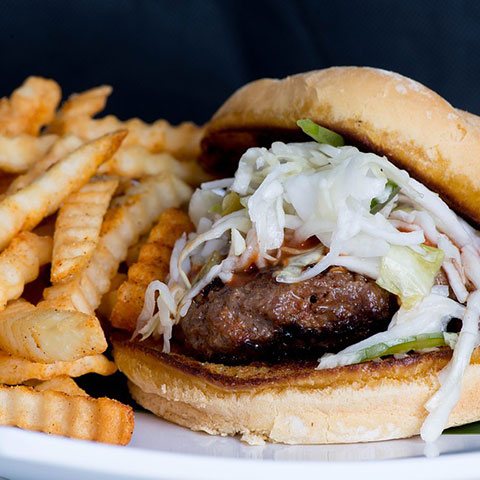This week’s healthcare news round-up includes reports that health officials have called for the number of calories in popular foods to be cut in order to reduce child obesity and other health conditions.
Elsewhere, there’s some positive news for those of you who suffer from a peanut allergy. A recent study may have found an oral treatment that is still effective, four years after it was first administered.
Finally, there’s worrying news regarding meningitis. It appears that the number of school-leavers having the meningitis jab is worryingly low, leaving them more at risk of the dangerous medical condition.
Health Officials say no to calories
Calories in popular foods such as pizzas, burgers and reading meal look set to be reduced by the government in a move welcomed by health officials. According to statistics, people are currently consuming 200-300 calories too many each day – which a huge concern for health officials across the country.
The new targets, due to be set by Public Health England within a year, will mean that supermarkets, takeaways and restaurants will need to either shrink the size of their products or find another way of reducing the number of calories in them.
Labelled as the calorie-reduction programme, this new scheme will follow the same model of the sugar-reduction campaign and comes following the successful salt reduction programme. On this new programme, PHE chief nutritionist Dr Alison Tedstone said:
“We have a serious problem – one in three leave primary school either obese or overweight. If we want to tackle this we have to look at calories. There are a number of ways it can be done – we can reduce the size of the products or change the ingredients.”
According to the NHS, school children are advised to consume anywhere between 1600 and 2500 calories per day. For an average man the number comes in at 2500, with an average woman needing around 2000 calories. Of course, these figure depend on age, size and levels of physical activity.
Just to give you some idea of the number of calories in some popular foods, here’re some examples given in the BBC report:
-A typical cheeseburger – 260
-10-inch takeaway pizza – 880
-Krispy Kreme Chocolate doughnut – 237
-Greggs Tuna Mayo Sub – 338
-400g tin of Heinz spaghetti – 244
It will be interesting to see how these new targets effect the companies involved in selling them over the next year. If you’re looking to improve your diet, take a look at our tips for healthy eating in older people.
Peanut Allergy success?
This could be positive news for those of you who suffer from peanut allergies. Researchers have found an oral treatment which is still effective four years after it was administered.
During the study children were give a probiotic, with a peanut protein, on a daily basis for 18 months. These children were then tested one month later, with 80% being able to tolerate peanuts without any allergy symptoms.
Four years later tests were carried out again, with 70& of the children still able to eat peanuts without suffering any symptoms. Lead researcher Prof Mimi Tang, of Murdoch Childrens Research Institute in Melbourne said:
“The importance of this finding is that these children were able to eat peanuts like children who don’t have peanut allergy and still maintain their tolerant state, protected against reactions to peanuts.”
According to Prof, Tang, this is the first time that a treatment for peanut allergies has shown to be effective for such a long period of time.
Meningitis Jab concerns
Nurses have warned that school-leavers are putting themselves at risk by not having a meningitis jab. People living in England aged 17 and 18 qualify for a free vaccination, however The Royal College of Nursing (RCN) have said that only a third took up the offer of a free jab in 2016.
People in this age range are more at risk of the infection due to the fact that they are mixing with a lot of new people, either at college or university. Coughs, sneezing and kissing can all help to spread the condition.
The current MenACWY jab helps to protect people from four strains of meningococcal disease, which cause meningitis and septicaemia – strains A, C, W and Y. This infection can cause life-threatening blood poisoning and also affects membranes around the brain.
According to health officials, there has been a huge rise in the number of MenW cases across the country. The number of cases has risen from 22 in 2009/10, to a staggering 210 in 2015/16.
Helen Donovan, from the RCN, told the BBC:
“Meningitis can be fatal, and can leave those who survive with life-changing disabilities. Vaccination is quick, easy and free, and offers protection against most strains of the disease, but reaching young people is not easy. Many will have been away over the summer travelling or working before university. But the risk is real and getting vaccinated saves lives. We are urging people to contact their surgeries now and book an appointment with the practice nurse.”
People remain eligible for the vaccine until their 25th birthday. Pupils in Year Nine, aged 13-14, are also routinely offered the jab in school.
If you’re looking for a Telecare Alarm and need further information please visit our Contact Us page or give our team a call for free on 0800 635 7000 today.




